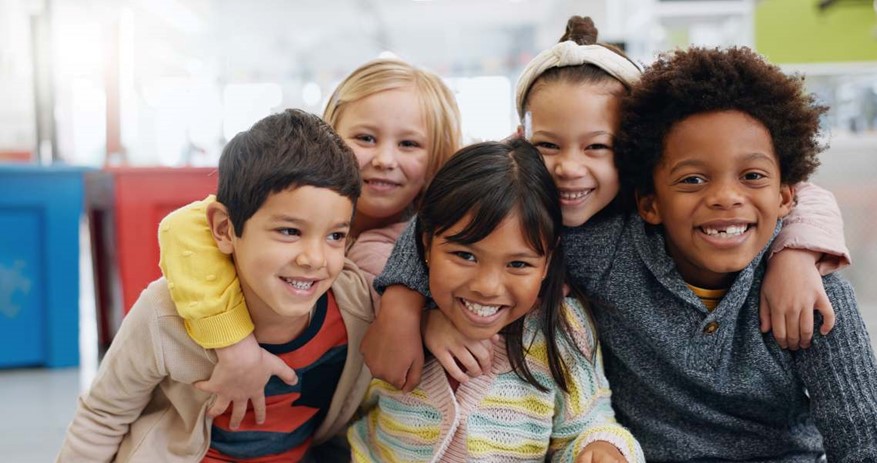Benefits of Bilingualism in Early Childhood

The Benefits of Bilingualism in Early Childhood-Trevose, PA; Bensalem, PA; Philadelphia, PA; Medford, NJ; and Mount Laurel Township, NJ
When children learn multiple languages from birth, their brains become wired differently. While it may seem illogical to teach children two languages at once, this type of teaching at a young age is beneficial for helping them learn and thrive in bilingualism. Here, we will discuss the advantages of raising bilingual children.
Cognitive Advantages of Bilingualism
Children who study multiple languages from an early age have several advantages in cognitive function.
- Memory Improvement
Children who have studied several languages from birth have been proven to have better memory. Regularly using two languages strengthens the part of the brain that is in charge of memory, which can help support many areas of daily life. - Enhanced Executive Function
Studies show that when children learn multiple languages, they excel at executive function. This means that they are better at problem-solving, maintaining focus, and switching tasks. - Greater Mental Flexibility
Children who learn more than one language from an early age show more agility in creative thinking as they are readily able to switch between languages and maintain linguistic context.
Language Development in Bilingual Children
Bilingual children have the ability to learn their original language at an advanced pace. From conjugation to understanding linguistic structures, learning multiple languages means success in reading and writing. This applies to any language they study.
Bilingualism and Brain Development
Bilingual children have an extra boost in brain development. According to a recent study, bilingualism is linked to increased focus and cognitive flexibility. Children who speak two languages are also more successful at solving brain-teasing puzzles. Mental games that involve colors and shapes are more quickly mastered by bilingual children than by children who speak only one language.
Speaking of the brain, bilingual adults are better able to cope with degenerative brain disorders. On average, multilingual Alzheimer’s patients manage the disease four years longer than their monolingual counterparts.
Dual Language Acquisition
Learning a second language can seem daunting. However, children between the ages of 0 and 3 have a unique ability to learn a second language that adults or older children don’t have. Young children can process sounds, tempos, and intonation in ways that older children cannot. Additionally, the ways that ear and speech muscles develop are more adaptable at an early age.
Advantages of Bilingual Preschools
Knowing that children as young as three have the highest success rates at learning multiple languages, it just makes sense to teach those languages in preschool. When bilingual toddlers speak, they choose which language to speak during conversation. This demonstrates incredible flexibility in the brain, which means that it’s ultimately the ideal time to be bilingual.
Bilingualism and Academic Success and Bilingual Education Benefits
There are academic benefits to a bilingual education.
- Improved Language Skills
When children are exposed to two languages at an early age, they begin to have a deeper understanding of linguistic structures. This can enhance their reading and writing skills in not only the two languages they’re learning but also in other languages they may want to study in the future. - Higher Achievement in Other Subjects
When children excel in the studies of multiple languages, they also excel in other academic areas such as science, math, and reading comprehension.
Cultural Benefits of Bilingualism
When children are bilingual, they acquire a deeper understanding of other cultures and people. They are more likely to practice empathy and show tolerance for others. Additionally, they will be more likely to adapt to social situations. Being multicultural is a beautiful gift to give a child. On many levels, this is a tremendous way to create adaptability to the world.
Conclusion
Broadening children’s horizons is critical to the education process. When children are exposed to several languages and cultures, they benefit in many ways. From understanding cultural differences to succeeding in other academic areas, bilingualism can offer many benefits to children. It can give them a leg up in life and their education. Offering your child the chance to learn multiple languages from an early age can mean giving them a chance to thrive.
Just Children
At Just Children, we focus on the whole child. We will not only educate your child but also help foster a love of learning while nurturing your child’s potential. We believe that early childhood education plays an integral role in a child’s development. We design our program knowing that it will affect the child’s educational progress into adulthood. With five locations in Pennsylvania and three in New Jersey, we have a location that will be convenient for you and your family. For more information, visit our website or contact us.
